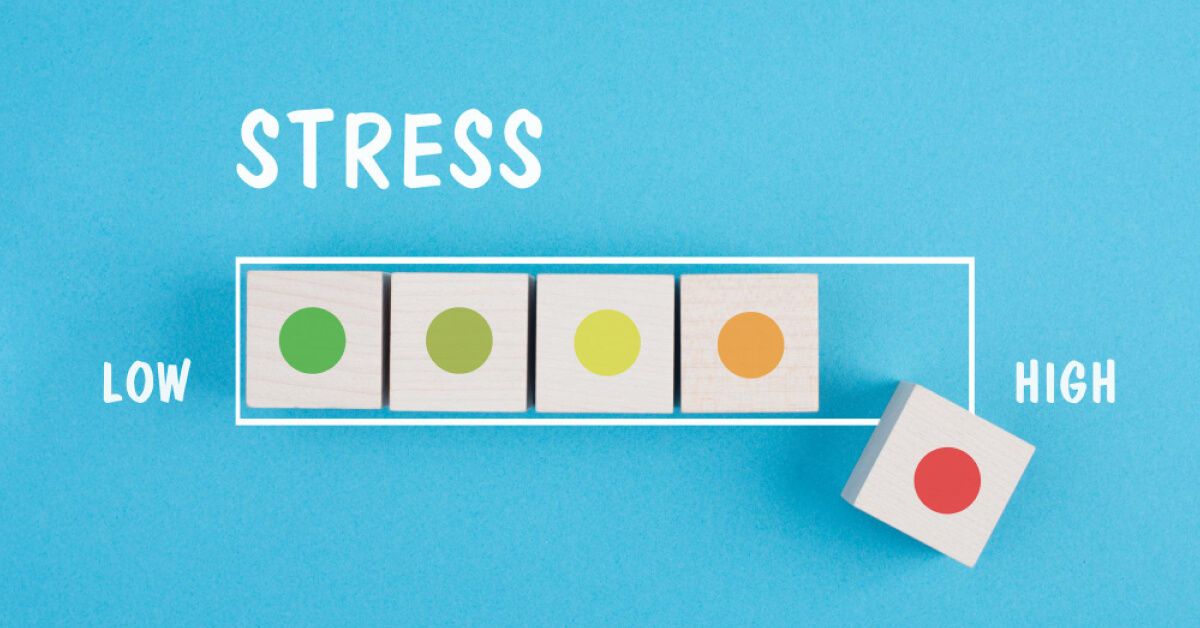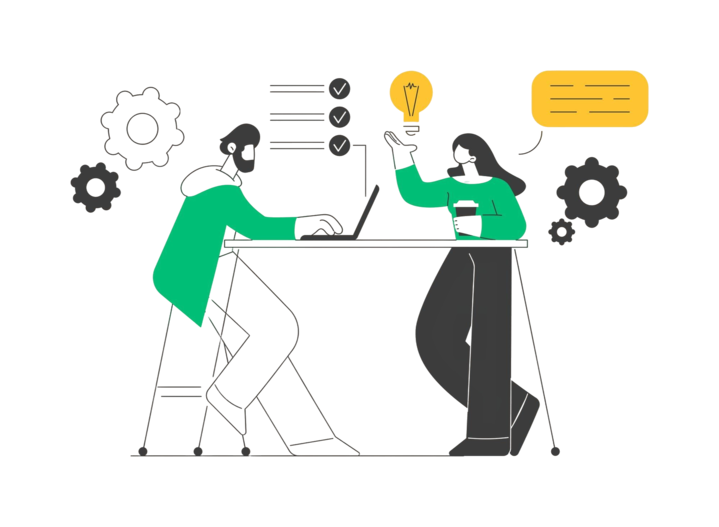Mental stress in blue-collar jobs: Why it happens and how to support your teams in 2026

Remember the night before a big school exam and that restless mix of anxiety and focus, where every small distraction felt monumental and one mistake could unravel everything you’d prepared for? It wasn’t the studying that drained you most but it was the mental weight of getting it right.
Now imagine carrying that same pressure, not for a few days, but every single day. That’s the reality for many blue-collar workers. Beneath the visible physical labor lies an invisible layer of stress, the constant need to stay alert, avoid errors, and meet expectations without faltering.
For employers and leaders, understanding this ongoing mental load isn’t just about empathy, but it’s about creating safer, more sustainable workplaces. Let’s unpack why this hidden stress matters more than most realize.
TL;DR
What is mental stress in blue-collar jobs, and why is it often ignored?

Mental stress in blue-collar jobs refers to the ongoing psychological pressure workers face from demanding physical labor, tight deadlines, and unpredictable schedules. Unlike their white collar counterparts, this stress is often overlooked because the focus stays on output in blue-collar industries, not emotional well-being or physical health.
Many assume resilience comes with the territory, leaving issues like burnout and emotional strain in frontline workers unaddressed until it’s too late.
TL;DR
Mental stress in blue-collar jobs refers to the psychological pressure workers face due to long hours, high physical demands, unpredictable shifts, and constant performance expectations. Unlike office settings, these stressors are often tied to safety risks, repetitive tasks, and lack of control over schedules.
It’s often ignored because mental health conversations in industrial settings still carry stigma, and most support systems focus on physical safety rather than emotional well-being.
1. Physical demands mask emotional strain
Blue-collar roles are physically taxing, so signs of stress are often mistaken for simple fatigue. The emotional strain in frontline workers gets buried under the assumption that aches and exhaustion are “normal” parts of the job, making chronic stress and mental wellness a low priority for many employers.
2. Work culture prioritizes toughness
In many industries, like for construction workers, there’s an unspoken rule — “don’t complain, just get it done.” This mentality leaves little room for open discussions about mental health among white collar workers, allowing burnout in manual labor roles to grow silently without support or intervention.
3. Lack of visibility in leadership
Supervisors and managers often focus on meeting quotas and safety compliance, overlooking signs of factory worker mental wellness issues. Since these roles are task-driven, mental well-being rarely appears on daily checklists, impacting overall job satisfaction, and self-care stress symptoms go unnoticed.
4. Misplaced assumption of resilience
Because blue-collar workers deal with tough conditions, managers often assume they can handle any mental challenge too. This misplaced belief particularly affects female blue-collar workers and delays blue-collar mental health support programs until problems become severe enough to disrupt productivity.
5. No consistent feedback channels
Without structured methods like real-time feedback for blue-collar jobs, mental stress isn’t flagged early. Workers might keep quiet out of fear or pride, and without anonymous ways to speak up, issues remain hidden until they impact performance or safety.
But if this stress has existed for decades, why does it feel like it’s suddenly intensifying now?
Why are stress levels rising in industries like manufacturing, logistics, and construction?

Workers' own stress levels in manufacturing, logistics, and construction are climbing faster than ever. The mix of intense physical demands, tight deadlines, and evolving industry pressures is creating a perfect storm for burnout in manual labor roles.
Without proper safeguards, this emotional strain in frontline workers risks becoming the new norm, and it’s costing companies more than they realize.
- Tighter production deadlines: In manufacturing, efficiency targets keep shrinking while output expectations grow. Workers push harder and longer, leading to fatigue and mental stress in blue-collar jobs that rarely get addressed in time.
- Labor shortages: With fewer hands on deck, the same workload is spread across smaller teams. This increases emotional strain in frontline workers, as they shoulder both their duties and those of absent colleagues.
- Shift and overtime pressures: Extended hours and unpredictable schedules disrupt rest cycles, making it harder for workers to recover physically and mentally. Over time, this accelerates burnout in manual labor roles.
- Safety concerns: Industries like construction and logistics carry higher physical risks. Constant vigilance to avoid injury, combined with pressure to meet deadlines, puts factory workers' mental wellness under constant strain.
- Economic uncertainty: Fluctuating demand, layoffs, or delayed projects add to perceived job insecurity in already high-pressure environments. Without blue-collar mental health support, workers internalize these worries while trying to stay productive.
- Technology integration challenges: New machinery and software require quick adaptation. For some, this shift creates stress, especially when tech-based solutions lack proper training or real-time feedback for blue-collar jobs.
- Communication breakdowns: When leadership focuses only on output metrics, updates about changes, policies, or support programs often get lost. This lack of transparency fuels anxiety and leaves workers feeling undervalued.
The physical work hasn’t changed much but the environment around it has become far more demanding.
What does mental stress look like on the jobsite or shop floor?

On a jobsite or shop floor, mental stress doesn’t always announce itself with a dramatic breakdown — it often hides in plain sight. A worker might become quieter, avoid casual conversations, or respond curtly where they once joked freely. This emotional strain in frontline workers can also show up as small mistakes, missed safety checks, or slower-than-usual output, especially when the tasks are normally routine for them.
Physical signs often accompany the mental load, tense posture, constant rubbing of temples, or frequent sick days. In some cases, burnout in manual labor roles manifests as irritability, conflict with colleagues, or a drop in motivation to take on extra shifts or responsibilities, potentially leading to a lack of depression diagnosis claims.
Factory worker mental wellness issues may also surface through disengagement: doing just enough to meet expectations without contributing ideas or energy. These aren’t signs of laziness but red flags that someone’s carrying more than they can handle.
Without timely blue-collar mental health support, these symptoms escalate, leading to higher turnover, blue-collar workplace accidents, and a culture where workplace stress becomes the unspoken norm. Recognizing them early is the first step toward real intervention.
And if those subtle signs go unaddressed, what happens when the culture encourages people to simply “push through”?
Why “tough it out” culture create long-term damage?
TL;DR
The “tough it out” culture in blue-collar workplaces pushes employees to hide fatigue, pain, or emotional strain instead of seeking help. While it may keep short-term productivity high, it silently fuels burnout, chronic health issues, and preventable accidents.
Over time, this mindset erodes trust, discourages open communication, and normalizes unsafe work practices. Workers stop reporting issues, managers lose visibility into problems, and turnover rises.
The “tough it out” culture might sound like grit, but in reality, it’s a slow leak in the well-being of your workforce. In blue-collar environments, this mindset tells workers to push through exhaustion, ignore discomfort, and avoid speaking up about struggles. While it keeps the wheels turning short-term, it quietly amplifies mental stress in blue-collar jobs over time.
For many, this attitude normalizes emotional strain in frontline workers, making them believe seeking help is a sign of weakness. As a result, burnout in manual labor roles goes undetected until it’s severe, leading to accidents, absenteeism, and an increased suicide risk declining performance.
When factory workers' mental wellness is sidelined, employees start detaching from their roles, trusting management less, and resisting change. Without open dialogue and proper blue-collar mental health support, the cycle repeats: stress builds, productivity drops, and turnover spikes.
In the long run, this culture doesn’t create resilience but erodes it, leaving both people and operations at risk while providing access to support. Real strength comes from building environments where asking for help is just as valued as getting the job done.
Having seen how mindset plays a role, let’s now look at how working conditions themselves chip away at mental well-being.
How do long hours and shift work silently affect mental well-being?

Long hours and rotating shifts might keep operations running, but they quietly chip away at mental well-being. The disruption to natural rhythms, particularly for those working night shift, coupled with constant physical demands, intensifies mental stress in blue-collar jobs.
Over time, these effects pile up, leading to burnout in manual labor roles that’s harder to reverse than to prevent.
- Sleep disruption: Irregular shifts interrupt the body’s circadian rhythm, making it harder for workers to get quality rest. Poor sleep fuels emotional strain in frontline workers, affecting focus, safety, and mood on the job.
- Increased fatigue: Extended hours deplete both physical and mental energy reserves. When exhaustion becomes routine, it compounds factory worker mental wellness challenges and lowers resilience to daily stressors.
- Weakened personal relationships: Long shifts limit time with family and friends, leaving workers feeling isolated. Without strong social support, blue-collar mental health support becomes even more critical to maintaining balance.
- Higher accident risk: Tired workers are more prone to mistakes. Sleep-deprived decision-making raises safety risks, further increasing the mental stress in blue-collar jobs.
- Poor diet and health habits: Shift schedules often disrupt regular meal times, leading to unhealthy eating patterns. Over time, this physical strain contributes to burnout in manual labor roles.
- Blurring of work-life boundaries: When shifts dominate personal time, workers struggle to mentally disconnect from their job. Real-time feedback for blue-collar jobs can help flag when this imbalance is starting to harm morale.
The human body isn’t built for 14-hour days or 2 a.m. starts and the mind isn’t either.
How does poor communication increase mental strain on blue-collar teams?

Poor communication on the shop floor or jobsite doesn’t just cause operational hiccups; it can significantly amplify mental stress in blue-collar jobs. When workers aren’t given clear instructions, updates, or context for changes, they’re left guessing. That uncertainty breeds anxiety, slows productivity, and feeds frustration, especially in high-pressure environments like factories, warehouses, or construction sites.
For many, unclear messages or inconsistent updates deepen emotional strain in frontline workers because they feel out of the loop and undervalued. It’s not just about missing memos; it’s about missing a sense of connection to the bigger picture. When workers operate in isolation from leadership, burnout in manual labor roles can creep in faster.
A lack of structured communication channels also means concerns about safety, workload, or mental health may never reach management. Without timely blue-collar mental health support or ways to share issues, like real-time feedback for blue-collar jobs, small problems snowball into bigger ones. Over time, poor communication doesn’t just strain operations; it quietly erodes trust, team morale, and the mental resilience needed to thrive in demanding physical jobs.
And if miscommunication can spark anxiety, what systems can actually help stop it before it starts?
What kind of support systems actually work for deskless workers?

Deskless workers face challenges that office-based support systems simply don’t address. Long hours, physical strain, and lack of constant access to HR or leadership make it harder for remote workers to spot and solve mental health issues early.
The best support systems not only address problems but actively reduce mental stress in blue-collar jobs before it turns into burnout.
TL;DR
Effective support systems for deskless workers go beyond generic wellness programs and focus on accessibility, relevance, and immediacy.
On-the-job mental health check-ins, peer support groups, and confidential feedback channels create safe spaces to share concerns. Mobile-friendly tools ensure workers can access resources without leaving the floor.
1. Flexible scheduling options
Rigid shift patterns often contribute to burnout in manual labor roles, especially when emergencies or personal needs arise. Allowing workers to swap shifts, take mental health days, or request reduced hours when needed shows empathy and trust.
Flexibility doesn’t mean lowering standards — it means creating a sustainable rhythm that keeps both productivity and well-being in balance, ultimately attracting top talent.
2. Peer support programs
Colleagues often notice changes in each other’s mood or energy before managers do. Setting up structured peer support groups creates safe, judgment-free spaces to talk about challenges, especially when energy levels are low.
These initiatives boost factory workers' mental wellness by encouraging workers to share coping strategies, listen without judgment, and normalize seeking help in a way that feels natural on the shop floor.
3. Accessible communication tools
Many deskless workers lack consistent access to company emails or office meetings, which can leave them feeling disconnected. Mobile-friendly apps or kiosk stations on-site can collect real-time feedback for blue-collar jobs and give employees a direct channel to share concerns.
Quick, accessible communication ensures small issues, supported by the national institute's guidelines, are addressed before they escalate into bigger stressors.
4. Tailored training for stress management
Generic corporate wellness seminars often miss the mark for hands-on roles. Training that’s customized for the pace, environment, and demands of blue-collar work is far more effective.
Practical sessions on stress coping, energy management, and mental resilience, integrated into regular safety or skills training, ensure blue-collar mental health support is ongoing, relevant, and actually applied in daily routines.
5. On-site mental health resources
Bringing mental health professionals or trained counselors directly to the worksite removes barriers like travel time, stigma, and scheduling conflicts. When help is physically present, workers are more likely to open up about emotional strain in frontline workers before it spirals into serious issues like depression. Confidential, drop-in sessions or wellness check-ins send a clear message: mental health matters just as much as safety gear.
With the right systems in place, the next step is learning to spot burnout before it turns into a crisis.
What are the early signs of burnout in blue-collar roles?
Burnout in blue-collar roles isn't similar to white collar jobs and doesn’t always start with exhaustion you can see — it creeps in quietly, affecting focus, mood, and safety before anyone connects the dots. Recognizing these independent risk factors early can prevent long-term damage to both workers and operations.
Spotting mental stress in blue-collar jobs before it peaks is the key to sustainable productivity.
- Consistent drop in performance: When once-reliable workers start missing deadlines, making more errors, or slowing down on routine tasks, it could signal more than physical fatigue. This dip often reflects emotional strain in frontline workers that’s impacting their ability to focus and engage.
- Withdrawal from team interactions: Workers experiencing burnout in manual labor roles may avoid conversations, skip breaks with colleagues, or keep responses short. Isolation often signals they’re mentally checking out, even if they’re physically present.
- Frequent unexplained absences: An increase in sick days or arriving late without clear reasons can be a coping mechanism for factory workers' mental wellness struggles. It’s often a way to avoid stress-heavy situations rather than just illness.
- Irritability and mood swings: Short tempers, sudden frustration, or increased conflict with co-workers can be early indicators of burnout. Mental stress in blue-collar jobs often surfaces as emotional volatility before physical symptoms.
- Loss of motivation for extra tasks: When employees who once volunteered for overtime or special projects start declining, it may point to mental and physical exhaustion. Without proper blue-collar mental health support, engagement quickly declines.
- Neglecting safety protocols: Skipping safety checks, rushing through tasks, or cutting corners can be signs of burnout in manual labor roles. Fatigue and emotional overload impair judgment and increase accident risks.
- Visible physical strain: While physical jobs naturally cause tiredness, chronic signs like dark circles, slouched posture, or repetitive strain injuries paired with disengagement can signal deeper issues. Real-time feedback for blue-collar jobs can help flag these patterns before they escalate.
Burnout rarely announces itself. It creeps in quietly, one missed break or one bad mood at a time.
How anonymous surveys help surface emotional distress?
Many blue-collar employees won’t openly share mental health concerns for fear of stigma or backlash. Anonymous surveys create a safe, judgment-free channel to speak up about emotional strain in frontline workers.
When designed well, these tools reveal what’s really going on behind the scenes — insights that can prevent burnout in manual labor roles before it’s too late.
- Encourages honest feedback: Without their name attached, workers are more likely to speak openly about challenges like mental stress in blue-collar jobs. This honesty helps managers identify hidden pain points that might never come up in face-to-face talks.
- Identifies recurring patterns: Anonymous surveys allow tracking of trends across teams or shifts. If factory worker mental wellness concerns consistently surface in certain roles or departments, leadership can target blue-collar mental health support where it’s needed most.
- Highlights unspoken workplace issues: Some problems like poor communication, unsafe practices, or unrealistic workloads are easier to share anonymously. Real-time feedback for blue-collar jobs ensures these issues aren’t buried under fear of retaliation.
- Gives voice to quieter employees: Not everyone feels comfortable raising their hand in a meeting. Surveys give every worker, regardless of personality, a platform to share their experience of burnout in manual labor roles without social pressure.
- Builds a culture of trust: When employees see leadership act on survey results, it reinforces that their voices matter. Over time, this encourages more participation, creating an open feedback loop that strengthens overall factory worker mental wellness.
But surveys alone aren’t enough, who’s equipped to actually interpret the red flags they reveal?
How to train managers to recognize mental health red flags?

Managers are often the first to notice changes in behavior, yet many aren’t trained to spot mental health red flags in blue-collar environments. Giving them the right tools transforms them from task supervisors into early intervention allies.
This approach helps reduce mental stress in blue-collar jobs before it escalates into burnout in manual labor roles.
- Educate on visible and invisible signs: Training should cover both obvious symptoms, like fatigue or irritability, and subtle cues, such as withdrawal or loss of interest. Recognizing emotional strain in frontline workers early allows for quicker, more effective support.
- Use real-world role-play scenarios: Simulated conversations help managers practice approaching sensitive topics without judgment. Role-play builds confidence in addressing factory worker mental wellness concerns in a respectful, solution-focused way.
- Integrate mental health into safety training: By linking mental well-being with accident prevention, managers understand how burnout in manual labor roles can impact safety. This reinforces that mental health isn’t separate from workplace performance.
- Teach active listening skills: Managers should learn to listen without interrupting, validate feelings, and avoid jumping to quick fixes. This skill makes blue-collar mental health support feel personal and genuine.
- Provide clear escalation steps: Training should outline when and how to involve HR, wellness teams, or external counselors. Pairing this with real-time feedback for blue-collar jobs ensures managers have actionable pathways to address serious concerns promptly.
With human eyes now attuned to stress, it’s worth asking: why do so many tools still fail to make an impact?
Why do tech-based solutions often fail blue-collar workers?

Tech can revolutionize workplaces, but when it comes to blue-collar environments, not every digital tool hits the mark. Many solutions are designed with office settings in mind, overlooking the realities of the shop floor or jobsite. This mismatch often leaves mental stress in blue-collar jobs unaddressed, despite the promise of innovation.
TL;DR
Many tech-based solutions fail blue-collar workers because they’re designed with desk-based employees in mind, not those on the shop floor or in the field.
Complex interfaces, lack of mobile optimization, and poor internet access make adoption difficult. Tools that ignore shift patterns or language barriers end up underused. Without tailoring features to real-world workflows, technology becomes an added frustration instead of a support system.
1. Limited device access
Unlike office staff, many frontline employees don’t have constant access to smartphones or computers at work. Without easy access, even the most advanced tools fail to capture emotional strain in frontline workers or provide timely support.
2. Complex user interfaces
If an app or platform is overly complicated, workers won’t use it. Burnout in manual labor roles can worsen when tech creates frustration instead of simplifying communication or reporting.
3. Poor fit for work environments
Factory floors, warehouses, and construction sites can be noisy, fast-paced, and physically demanding. Solutions not built for these conditions often fail to support factory workers' mental wellness effectively.
Source: (AppyHere)
4. Lack of real-time feedback channels
Many tools collect data but don’t provide instant, actionable responses. Without real-time feedback for blue-collar jobs, issues linger, and workers lose trust in the process.
5. One-size-fits-all design
Generic tech platforms rarely address the unique demands of physical labor roles. Without tailoring features for blue-collar mental health support, the technology becomes irrelevant to those who need it most.
The latest app might look great in a boardroom but it often flops on the factory floor.
What successful companies are doing to support mental health in factories and warehouses?
Forward-thinking companies understand that supporting mental health in factories and warehouses is essential—not just an HR trend, but a business necessity tied to safety, retention, and productivity. The need is clear: 47% of warehouse workers report that their mental health has suffered because of their job. Addressing these issues directly benefits both employees and business outcomes.
- Embedding on-site wellness programs: Companies are setting up dedicated wellness spaces where workers can take short mental breaks or access counseling. This hands-on approach reduces emotional strain in frontline workers by making help visible and accessible during the workday.
- Offering mental health training for managers: Training leaders to recognize and address burnout in manual labor roles means issues are caught early. It creates a proactive culture where support becomes part of day-to-day management.
- Providing flexible shift structures: By allowing occasional shift swaps, shorter rotations, or adjusted schedules, businesses help protect factory workers' mental wellness while still meeting production goals. Flexibility here pays off in reduced absenteeism.
- Implementing anonymous feedback tools: Real-time feedback for blue-collar jobs, gathered through surveys or kiosks, gives employees a safe way to share concerns. Companies then act quickly to resolve issues before they escalate.
- Recognizing and rewarding effort: Regular acknowledgment of hard work — from public praise to small incentives — builds morale. This type of recognition is a key element of blue-collar mental health support that keeps teams engaged.
- Linking mental health to safety programs: Successful companies integrate mental health awareness into safety briefings and protocols. This reinforces the message that well-being is not separate from operational success but central to it.
But could there be a way to predict burnout before it spirals?
Can AI and sentiment analysis detect emotional burnout before it’s too late?

AI and sentiment analysis are emerging as valuable tools for spotting mental stress in blue-collar jobs before it reaches a breaking point. By analyzing language in feedback forms, survey responses, or even workplace chat platforms, AI can detect patterns that signal emotional strain in frontline workers. These insights go beyond surface-level observations, helping identify issues that managers might overlook in day-to-day interactions.
For example, recurring keywords, negative tone shifts, or changes in response frequency can hint at burnout in manual labor roles. Combined with attendance and performance data, sentiment analysis creates an early warning system for factory worker mental wellness concerns. This allows companies to act quickly, offering blue-collar mental health support before problems escalate.
However, the technology only works if workers have accessible, safe channels to share honest feedback. Pairing AI with real-time feedback for blue-collar jobs ensures continuous monitoring without invading privacy. When used responsibly, AI doesn’t replace human empathy — it enhances it, equipping managers with the insights they need to protect their teams’ mental well-being long before burnout becomes irreversible.
“Mental stress? That’s a white-collar thing because blue-collar workers mostly deal with physical strain, not emotional overload.”
It’s a common pushback: people often assume that manual work is left-brain, task-oriented, and free from the complex psychological pressures tied to office work. So why frame mental strain as a concern in blue-collar roles?
But according to Nivati, in the construction sector alone, 83% of workers have reported experiencing a mental health issue, while 70% suffer from undiagnosed PTSD.
These aren’t just anecdotes or outliers. They signal deep, systemic stress. What seems like “just physical labor” often carries an invisible psychological burden that can be just as damaging. Neglect it, and the costs to people and organizations are real.
The answer lies in smarter listening and that’s exactly where CultureMonkey comes in.
How does CultureMonkey help capture and address emotional strain through real-time feedback?

CultureMonkey bridges the gap between blue-collar teams and management by making it simple to share and act on feedback instantly. Its platform is designed to spot mental stress in blue-collar jobs early, so issues don’t get buried under day-to-day demands.
By focusing on accessibility and action, it helps turn insights into meaningful blue-collar mental health support.
- Anonymous, accessible surveys: CultureMonkey’s mobile-friendly surveys allow workers to share concerns without fear of stigma or backlash. This encourages honest conversations about emotional strain in frontline workers that managers might otherwise miss.
- Real-time feedback tracking: The platform captures feedback instantly, giving managers live insights into team morale. This quick detection helps address burnout in manual labor roles before it disrupts productivity or safety.
- Customizable survey templates: Companies can tailor surveys to focus on factory worker mental wellness, workload concerns, or safety culture. This flexibility ensures feedback is relevant to the unique needs of each worksite.
- Data-driven action plans: CultureMonkey doesn’t just collect feedback — it translates it into actionable strategies. These plans strengthen blue-collar mental health support by targeting the most pressing challenges first.
- Progress monitoring over time: By tracking sentiment trends, CultureMonkey shows whether interventions are working. This continuous improvement loop, powered by real-time feedback for blue-collar jobs, ensures mental well-being stays a long-term priority.

Detect stress behind the hard hats
Use CultureMonkey surveys to uncover the mental load your frontline teams carry.
Book a demoConclusion
Supporting mental health in blue-collar roles isn’t just about reacting to problems — it’s about building a workplace where emotional well-being is protected every day. From tackling the “tough it out” culture to recognizing early burnout signs, proactive strategies make all the difference.
Real-time feedback, manager training, and accessible support systems can prevent small stressors from causing long-term damage. When workers feel heard and valued, safety improves, productivity rises, and turnover drops. Tools that make communication easy and actionable are essential for sustaining this progress.
That’s where CultureMonkey comes in, helping you capture honest feedback, spot hidden concerns, and create targeted plans to support your teams. Start using CultureMonkey to keep your workforce healthy, resilient, and engaged in 2026.
FAQs
1. What causes mental stress in blue-collar jobs?
Mental stress in blue-collar jobs often stems from long hours, physically demanding tasks, safety risks, and unpredictable schedules. Added pressures like labor shortages, tight deadlines, and poor communication increase emotional strain in frontline workers. Without proper blue-collar mental health support, these factors can build over time, leading to burnout in manual labor roles and higher turnover rates.
2. How do I know if my team is stressed or burned out?
Watch for early changes in behavior, decreased productivity, increased errors, withdrawal from team interactions, or irritability. Burnout in manual labor roles may also show as frequent absences or reluctance to take on extra shifts. Spotting these signs early allows for timely blue-collar mental health support, preventing further emotional strain in frontline workers.
3. What are common signs of mental strain in shift-based work?
Common indicators include chronic fatigue, sleep disruption, irritability, and reduced motivation. Workers might also display lapses in safety protocols or withdraw from social interactions. In shift-heavy roles, burnout in manual labor positions develops faster without rest and recovery. Real-time feedback for blue-collar jobs can help flag these signs before they impact safety or morale.
4. Are mental health programs available for deskless employees?
Yes, many companies now offer tailored blue-collar mental health support. Options include on-site counseling, peer support groups, flexible scheduling, and mobile platforms for real-time feedback for blue-collar jobs. These programs aim to make mental health resources accessible for the blue-collar workforce despite physical work environments, reducing emotional strain in frontline workers and helping prevent burnout in manual labor roles.
5. What tools help track emotional well-being on the shop floor?
Tools like anonymous surveys, mobile feedback apps, and sentiment analysis platforms track mental stress in blue-collar jobs effectively. They provide real-time feedback for blue-collar jobs, highlight trends, and reveal hidden challenges. When paired with responsive management action, these tools help address emotional strain in frontline workers and protect factory workers' mental wellness over the long term.










